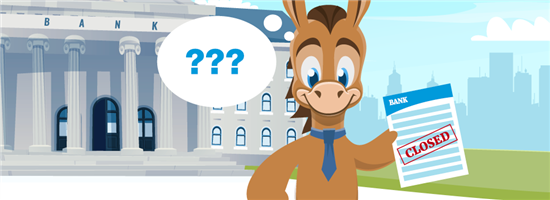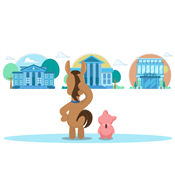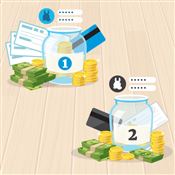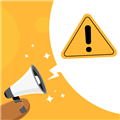What Happens When a Bank Closes Your Account
When your bank closes your account unexpectedly, it can be quite worrying and stressful. Read on to know what to do and how to prevent it.
 |
Imagine checking your bank account one day, only to find it closed without warning. What do you do next?
Some banks can terminate accounts because of suspicious activities or changes within the bank itself. This greatly impacts your finances especially when you're not expecting it.
Learn what really happens when the bank closes your account, why they do it, what to do next, and how to avoid it.
Why a Bank Might Close Your Account
Learning that the bank has closed your account can be quite concerning. The question is, why did they do it in the first place?
Here are some possible reasons they would close an account:
- Regular account inactivity
- Accumulation of unpaid overdrafts
- Suspected fraud
- Having zero balance
- Frequently exceeding transfer limits
- Permanent closure of the bank
- Violation of terms and conditions
If any of these reasons apply to your situation, you're probably wondering why you weren't notified beforehand. In reality, the bank is not obligated to inform you of its decision to close your account before implementing it.[1]
If a bank closes your account, they may view you as a high risk to them if you have repeated overdrafts or bounced checks that result in a negative balance. Such occurrences raise concerns about your ability to manage your finances responsibly.
What Happens When a Bank Closes Your Account
If your account had money when the bank closed it, expect to receive your funds back, albeit after deducting relevant fees. Typically, the bank will issue a check and mail it to you. This process also extends to any automatic deposits made into your account after its closure.
However, if your account had a negative balance at the time of closure, the bank would request that you settle the outstanding amount along with potential penalties.
In cases where you're unable to make the payment, these unpaid debts may be handed over to a collection agency, which can have a negative impact on your credit score.
If it's just a particular branch that closed, your account can remain active, although your branch accessibility will be affected. But if the whole bank went under, you must file a claim to retrieve your money with the bank's deposit insurance company (FDIC or NCUA).
Potential Consequences of a Bank Closing Your Account
What if you have bills to pay, and you're relying on the account that the bank closed suddenly? It can be disastrous financially, resulting in missed payments and incurred penalties.
Here are other things that can happen when the bank closes your account out of the blue:
- Loss of access to funds
The impact can be significant, especially when you can't access your closed account for emergencies or receive your salary due to a failed direct deposit. - Returned or missed payments
Checks that haven't been cleared, automatic payments, or incoming funds linked to your closed account might be rejected. This can lead to possible penalty fees. - Difficulty opening a new account
Abrupt account closure can raise red flags with other banks, as it will likely reflect on your ChexSystems report. - Damaged relationship with the bank
A closed account may affect your access to other financial products (such as loans and credit cards) offered by the bank. - Legal implications
In some cases, an account closure may lead to legal disputes, especially if outstanding debts or fraudulent transactions are involved. - Emotional stress
Having your account terminated by your bank can be emotionally distressing, causing anxiety and uncertainty in your banking future.
An overdrawn account means you have unpaid obligations to the bank, which may be due to frequent overdrafts. It is typically forwarded to a collections agency if you don't settle it with the bank within a certain period.
What To Do When a Bank Closes Your Account
If the bank terminated your account without warning, here's what you can do:
- Call your bank.
The first thing to do is to reach out to your bank and demand a reason for closing your account. You can also request a written explanation to help document their action. - Sort out pending transactions.
See if you have uncleared checks, recurring items, overdrafts, or automatic payments and arrange alternatives to settle them with the bank, biller, or entity. - Get your ChexSystems report.
ChexSystems is a consumer reporting agency that tracks your banking history, including any negative incidents like a bank closing your account. - Withdraw the remaining balance.
You must be able to claim any funds left in your bank account, which the bank usually sends a check for. - Look for other account options.
Consider opening a new account with another bank or exploring non-bank alternatives like prepaid debit cards.
A bank closing your account is often not a good thing because it typically happens due to mismanaging it. Thus, it could result in a negative entry on your ChexSystems report and potentially in your credit history for overdrawn accounts left unpaid to the bank.
What If Your Account Was Wrongfully Closed?
If you feel your account closure was unfair, you should start by gathering evidence to support your claim. You can use transaction records or proof of communication with the bank.
Next, you can try to make an appeal with the bank directly. This allows you to present your case to a higher authority in the bank, who may be able to reconsider the decision.
If the bank does not address your concerns, consider filing a complaint with the Consumer Financial Protection Bureau. It is a regulatory agency that ensures everyone gets fair treatment from banks or financial institutions.
For more serious cases, consult legal advice if you believe the bank's actions had severe financial consequences or violated your rights.
Yes, opening another account with the bank is possible even if they previously closed your account. But this may only be if it was closed due to a technicality, such as a lack of activity in your old account. Otherwise, you may be better off exploring options elsewhere.
How To Avoid Unexpected Account Closure
It's important to stay proactive in maintaining your account's good standing. As such, the following tips and best practices may help:
- Check your account regularly.
- Activate text or email alerts when balances dip below minimum requirements.
- Keep enough funds for your scheduled payments and recurring transactions.
- Prevent overspending by opening an account that does not allow overdrafts.
- Enroll in overdraft transfers by linking another account.
- Keep your contact information updated.
- Comply with bank policies.
FAQs
Can the bank reopen a closed account?
It is possible for banks to reopen a closed account, but likely not if it is due to fraud or excessive overdrafts. If they closed your account due to lack of activity, they may reopen it or open a new one as you wish.
Can your bank close your account without your permission?
The bank can close your account without your permission; they're not even required to advise you.[2] Just the same, most banks notify clients after it has closed their account, not before initiating it.
How long does a closed bank account stay on your record?
ChexSystems will store records of closed bank accounts for up to five years. It could be shorter if the bank that closed your account has requested its removal or for any other reason.[3]
Bottom Line
Experiencing an unexpected bank account closure can catch you off-guard. It is a challenging situation with potential financial consequences.
Whether it's due to account inactivity or something more serious, such as an overdrawn account and fraud, your next steps will be crucial.
By understanding the bank's reasons for its decision and gathering the necessary information, you will be better equipped to address the issue with proper action.
References
- ^ HelpWithMyBank.gov. The bank closed my checking account and did not notify me. Is this legal?, Retrieved 11/06/2023
- ^ Consumerfinance.gov. The bank/credit union closed my checking account even though I did not want them to. Can the bank/credit union do that?, Retrieved 11/06/2023
- ^ ChexSystems. FAQ: How long does the closed account stay on ChexSystems file?, Retrieved 11/06/2023
Write to Penelope Besana at feedback@creditdonkey.com. Follow us on Twitter and Facebook for our latest posts.
|
|
|




